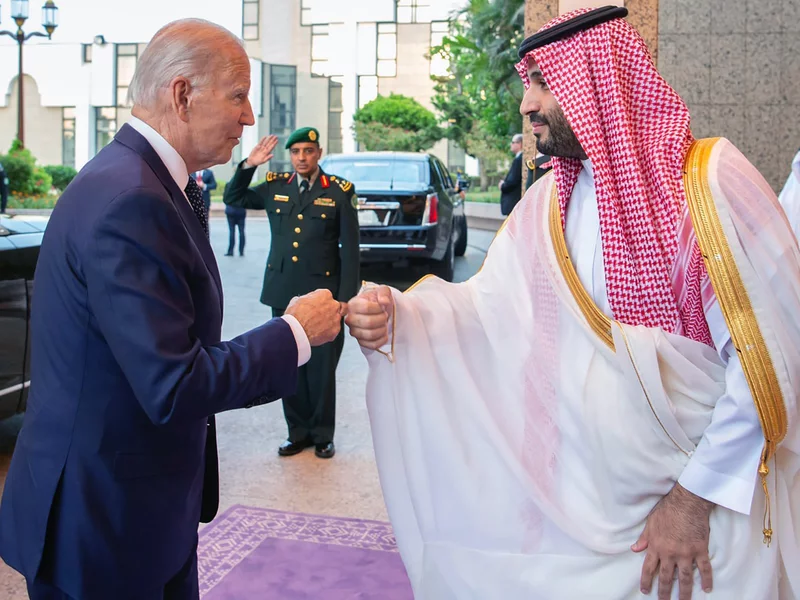Saudi Arabia’s Human Rights Violation Comes into Question As It Expands Its Influence
December 22, 2022
Recently, Saudi Arabia has begun to exert a significant influence on the world economy and politics. Most notably, the Saudi Arabian government—under the leadership of Crown Prince Mohammed bin Salman (MBS)—began to actively search for partners for the construction of a futuristic city “Neom” in Tabuk Province in northwestern Saudi Arabia. It is believed that the project will cost approximately $500 billion, and a number of nations and companies are hoping to play a role in this lucrative project. In addition, Saudi Arabia seems to be moving away from the United States’ influence, as the country raised energy prices despite President Biden’s request to reconsider the decision. While the NEOM project and oil reserve appear to be elevating Saudi Arabia and its crown prince’s status in the international community, some fear that important problems such as MBS’s human rights violations and Saudi Arabia’s energy price manipulation that burdens the world economy will be overlooked.
One notable partner that Saudi Arabia began to actively cooperate with is Egypt. According to Al-Monitor, back in 2018, Saudi Arabia and Egypt signed various investment agreements and established a “$10 billion joint fund to develop about 1,000 square kilometers of Egyptian lands in southern Sinai, to be part of the NEOM project.” MBS once again revealed his intention to drastically increase his investment in Egypt and complete the NEOM project, stating that he will “create huge investments in Egypt.”
Saudi Arabia also turned its eye to South Korea, a country that is nearly 5,000 miles away. While Saudi Arabia and South Korea’s closest ally—the United States—are in an uncomfortable relationship following the Saudi government’s decision to raise energy prices, the relationship between Saudi Arabia and Korea seems unaffected. In fact, according to Reuters, Korea recently secured a deal on energy/defense sectors and the construction project of a railway system in Neom city that totaled $30 billion. Some consider this Saudi Arabia’s attempt to consolidate its relationships with allies of the United States despite its conflicts with the US itself.
Saudi Arabia’s intention to move away from the US sphere of influence became clear at the China-Saudi Arabia summit on December 8. Saudi Arabia prepared an extraordinarily lavish welcome ceremony for Chinese President Xi Jinping. According to Vox, MBS and President Xi reached an “agreement that the two nations would not interfere with each other’s domestic affairs.” This allows China and Saudi Arabia—both of which are under the accusation of human rights violation by the US and its allies—to collaboratively respond to western pressures. In addition, President Xi discussed the idea of purchasing oil and gas in the Chinese Yuan instead of the United States Dollar, which would cause a major uproar in the global economy. If Saudi Arabia allows this, it would considerably loosen the US’ grip on global trade and Dollar hegemony.
Saudi Arabia’s recent actions may allow it to effectively counter the US and the west’s pressure regarding its manipulation of oil prices. However, its government must still respond to the accusations of human rights violations and media suppression. For instance, MBS was accused of ordering the murder of dissident journalist Jamal Khashoggi, who openly criticized and exposed the Saudi Arabian government. While, according to The Washington Post, MBS denies that he ordered the murder of the journalist, the C.I.A. had assessed with “high confidence that MBS himself ordered the operation to kill Khashoggi.” As reported by Reuters, President Biden also previously stated that he held the prince accountable for the murder. In addition, it has also been confirmed by Vox that MBS is promoting an internal crackdown and is targeting dissidents abroad. However, due to his influence on the global economy, the international community has not been able to do much in response. It would be important for the international community to respond to the Saudi Arabian government’s diplomatic and economic attempts to conceal its human rights violations and avoid responsibility.

















































































































































